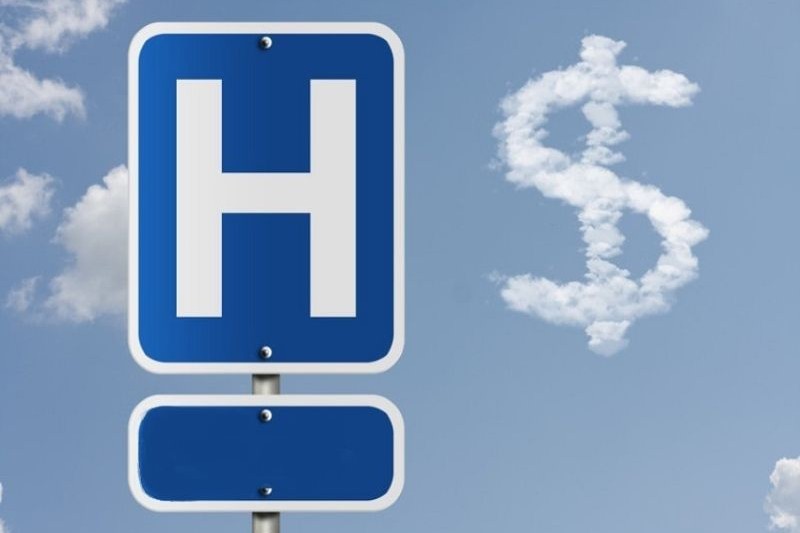Nonprofit Hospitals Are Cashing In On Real Estate
Nonprofit hospital networks are acquiring vast amounts of real estate across the United States, generating income from these properties while taking advantage of their charitable status to avoid paying property taxes that typically fund vital public services like schools and emergency services.
Some hospitals are even using their tax-exempt profits to influence local elections that could impact their bottom line, such as a current push to oust a progressive mayor who is challenging the tax-exempt status of a major hospital’s real estate holdings.
Nonprofit hospitals receive significant tax exemptions at the federal, state, and local levels in exchange for offering free or discounted medical care and other services like substance abuse programs. However, many of these hospitals devote only a small portion of their tax breaks to charity care, instead investing millions (or even billions) into real estate and other assets. Once these properties are owned by nonprofit organizations, they are exempt from property taxes, a practice that critics argue is a misuse of the hospitals’ tax-exempt status, depriving local governments of revenue needed for essential community services.
A forthcoming study by the Lown Institute, a nonpartisan think tank, will reveal that the top 10% of hospitals hold an average of $18 million in tax-exempt properties. In Massachusetts, the combined value of property tax exemptions for the 50 hospitals studied amounts to an estimated $340 million.
“How does the goal of nonprofit laws align with hospitals consolidating land and power this way?” asks Pat Garofalo, director of state and local policy at the American Economic Liberties Project. “The public is subsidizing these purchases.”
One of the most notable players in this trend is the University of Pittsburgh Medical Center (UPMC), which is the largest non-government employer in Pennsylvania. As of 2021, UPMC owned $2.1 billion in tax-exempt properties, representing nearly a fifth of all such properties in Allegheny County, where Pittsburgh is located. UPMC argues that these properties are essential to its charitable mission.
UPMC is also becoming a powerful force in Pittsburgh’s upcoming mayoral race. Incumbent Mayor Ed Gainey, elected in 2021, has been an outspoken critic of UPMC’s increasing real estate holdings, accusing the organization of improperly granting tax exemptions to properties that are not truly serving its charitable mission.
Gainey is facing strong opposition from County Controller Corey O’Connor, who is backed by local real estate developers and, notably, UPMC board members. Campaign finance records show that UPMC-related board members and their families have contributed at least $25,000 to O’Connor’s mayoral campaign this year. Before receiving these donations, O’Connor had supported Gainey’s tougher stance on challenging nonprofit tax exemptions. However, after the donations came in, O’Connor changed his position, claiming that he would work with nonprofits to help fund the city’s essential needs, such as infrastructure.
Critics argue that UPMC’s practices reflect a broader trend of nonprofit hospitals exploiting their tax-exempt status. A 2024 report by the Lown Institute revealed that 80% of 2,425 hospitals studied spent less on charity care and community investment than the value of their tax exemptions — creating what the institute calls a “fair-share deficit.” For instance, UPMC’s Presbyterian Shadyside hospital in Pittsburgh had the largest such deficit in 2020, spending $246 million less on charity care than it received in tax benefits — enough to pay off medical debts for over 167,000 Pennsylvanians.
“It’s not about providing charity to the community; it’s about the community subsidizing you,” says Vikas Saini, president of the Lown Institute.
UPMC, which also holds the largest insurance market share in western Pennsylvania, has faced ongoing criticism for its financial practices. Last year, the organization spent $50 million on a corporate jet to fly to its international hospitals, which is roughly the same amount it receives annually in local tax exemptions.
Meanwhile, the hospital’s former CEO, Jeffrey Romoff, earned nearly $18 million in deferred compensation for 2023, despite leaving the position in 2021. His successor, Leslie Davis, made $11.3 million in the same year, placing both of them among the highest-paid nonprofit hospital executives, comparable to their for-profit counterparts.
In addition to its real estate holdings, UPMC has garnered scrutiny for its monopolistic practices in the local health care market. The organization is facing a class-action lawsuit from the Department of Justice over its control of local healthcare workers and allegedly suppressing wages through noncompete agreements.
Since taking office, Mayor Gainey has made it a priority to reclaim property tax revenue from UPMC. Gainey has pursued legal challenges to the tax-exempt status of more than 50 UPMC-owned properties, although many of these cases have been unsuccessful. Nonetheless, his supporters argue that these actions help strengthen the city’s position in negotiations for a payment agreement with UPMC. In 2024, Gainey attempted to negotiate a $125 million payment from UPMC over the next decade, but the deal quickly fell apart, with UPMC denying any such offer.
O’Connor has received substantial financial support from both UPMC and Pittsburgh’s real estate developers, with local real estate moguls contributing 80% of his campaign’s $1 million war chest. This mayoral race has become a key battleground in the ongoing debate over nonprofit hospitals’ tax exemptions and their role in the community.
“The University of Pittsburgh Medical Center is not an outlier; it’s an example of what’s happening nationwide,” says Saini. “Big hospitals and big medicine are operating like private equity firms, and our health care dollars should be spent on patient care, not real estate investments.”
Source: msn
For more information contact us:
954.346.8200 x 201




